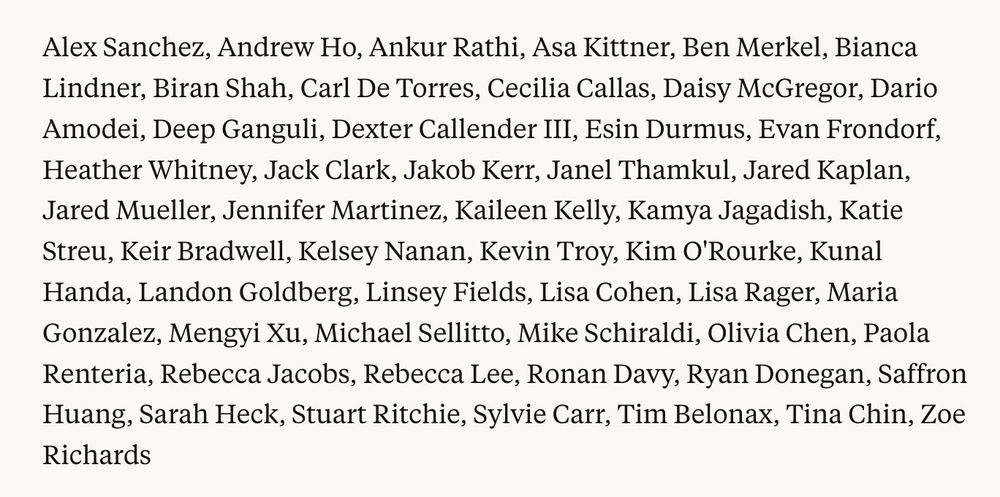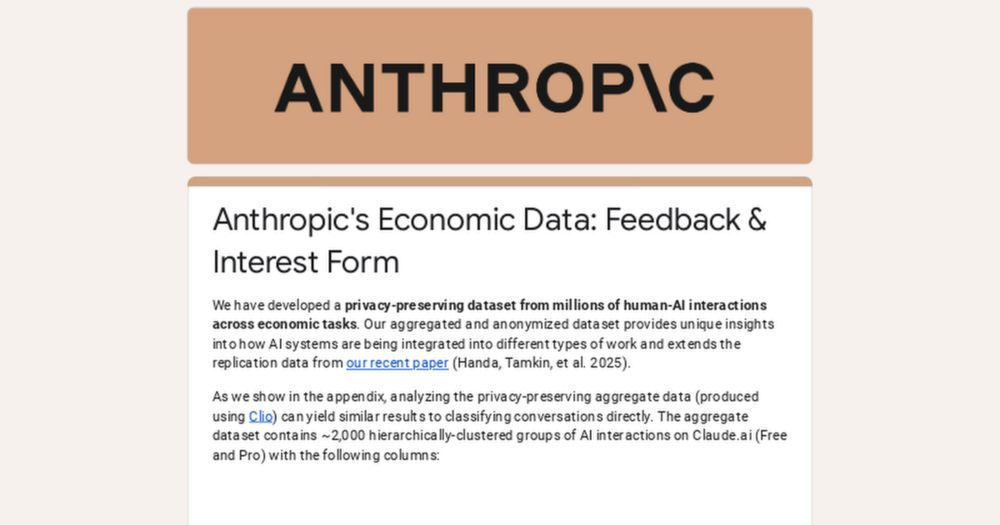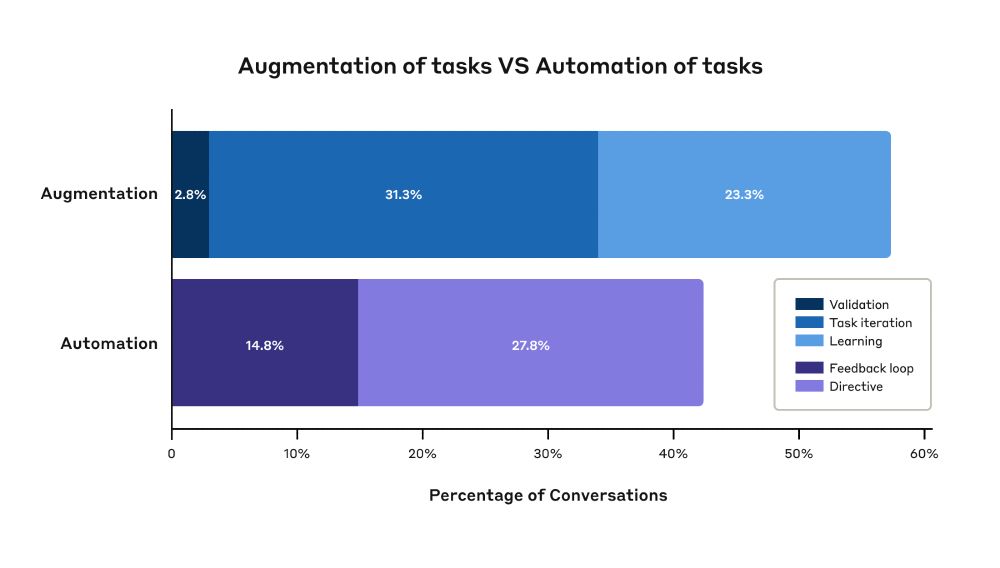

www.anthropic.com/economic-ind...
www.anthropic.com/economic-ind...


Use cases range from interior design to analyzing financial reports to helping with freight logistics.

Use cases range from interior design to analyzing financial reports to helping with freight logistics.
We’re not sure why this is, and would be interested to see more research on here.

We’re not sure why this is, and would be interested to see more research on here.
en.wikipedia.org/wiki/Great_D...

en.wikipedia.org/wiki/Great_D...
This could reflect both increased user trust in AI and model improvements.
We see more activity associated with code creation and less with debugging, which might mean users can accomplish their goals more in a single shot.

This could reflect both increased user trust in AI and model improvements.
We see more activity associated with code creation and less with debugging, which might mean users can accomplish their goals more in a single shot.
Interactive website: anthropic.com/economic-index
Report & data: www.anthropic.com/research/ant...

Interactive website: anthropic.com/economic-index
Report & data: www.anthropic.com/research/ant...
There's lots more to come, so stay tuned.
6/6🌅
There's lots more to come, so stay tuned.
6/6🌅
Thanks to my amazing coauthors, including co-lead Kunal Handa, Miles McCain, Saffron Huang, Esin Durmus, Sarah Heck, Jared Mueller, Jerry Hong, Stuart Ritchie, Tim Belonax, Kevin K. Troy, Dario Amodei, Jared Kaplan, Jack Clark, and Deep Ganguli
5/
Thanks to my amazing coauthors, including co-lead Kunal Handa, Miles McCain, Saffron Huang, Esin Durmus, Sarah Heck, Jared Mueller, Jerry Hong, Stuart Ritchie, Tim Belonax, Kevin K. Troy, Dario Amodei, Jared Kaplan, Jack Clark, and Deep Ganguli
5/
We’re also excited to see what others do with our data—please get in touch via this form with any feedback or input:
docs.google.com/forms/d/e/1F...
4/

We’re also excited to see what others do with our data—please get in touch via this form with any feedback or input:
docs.google.com/forms/d/e/1F...
4/
This gives us a moving picture of how AI is advancing across the economy, and identifies leading indicators that we can use to plan.
3/
This gives us a moving picture of how AI is advancing across the economy, and identifies leading indicators that we can use to plan.
3/
First, I’m excited that our methods give insight into *how* work is done with AI
There’s a lot of interest in *what* tasks AI will do, but *how* AI changes the nature of work is also crucial.
2/

First, I’m excited that our methods give insight into *how* work is done with AI
There’s a lot of interest in *what* tasks AI will do, but *how* AI changes the nature of work is also crucial.
2/

